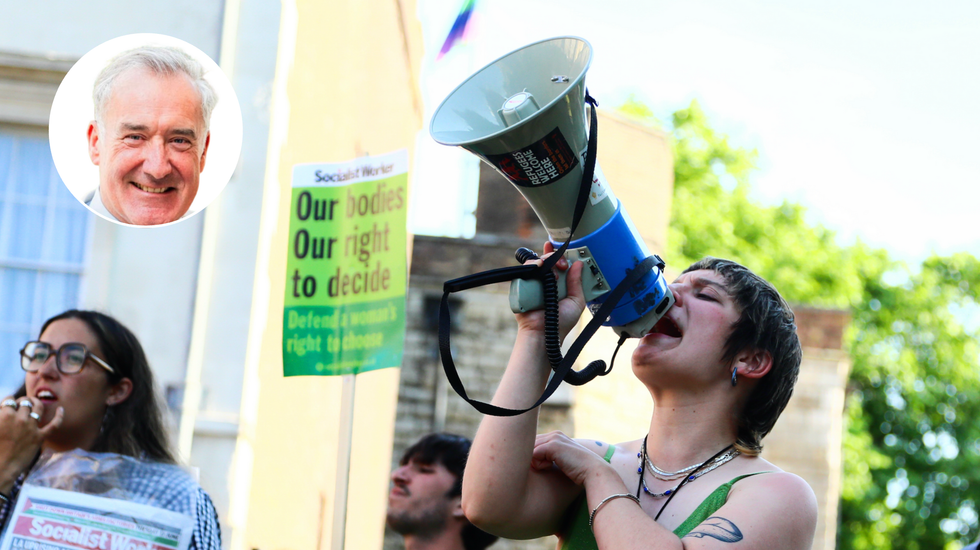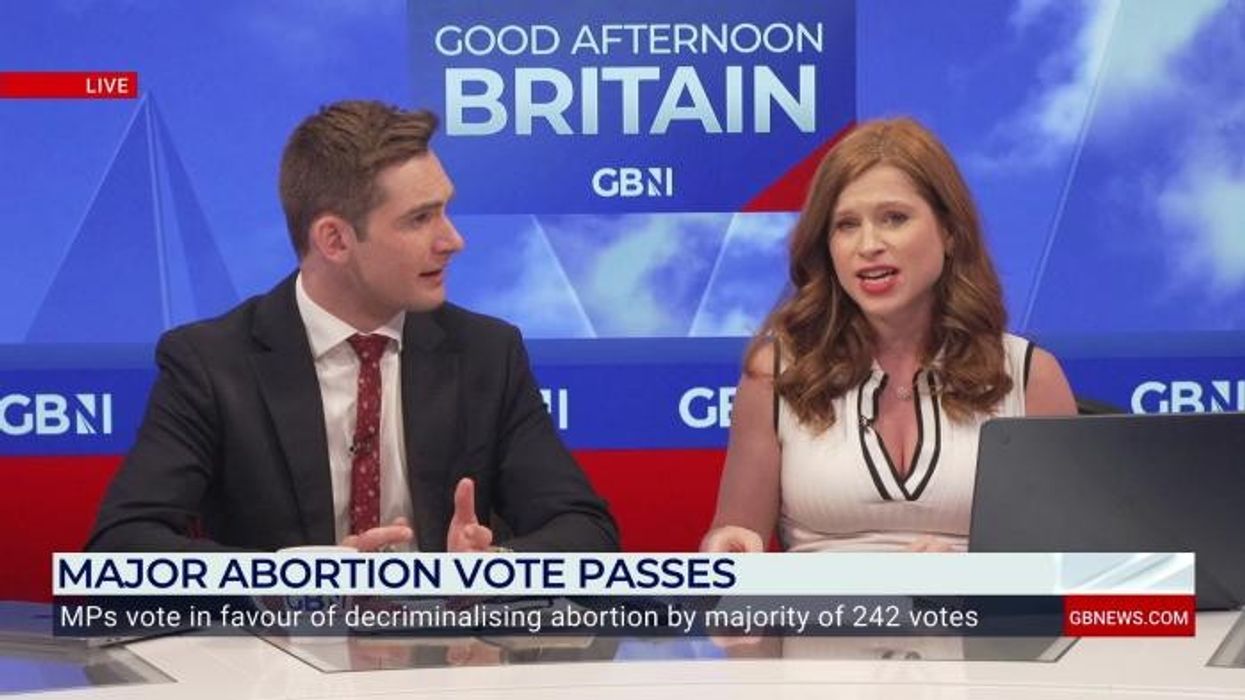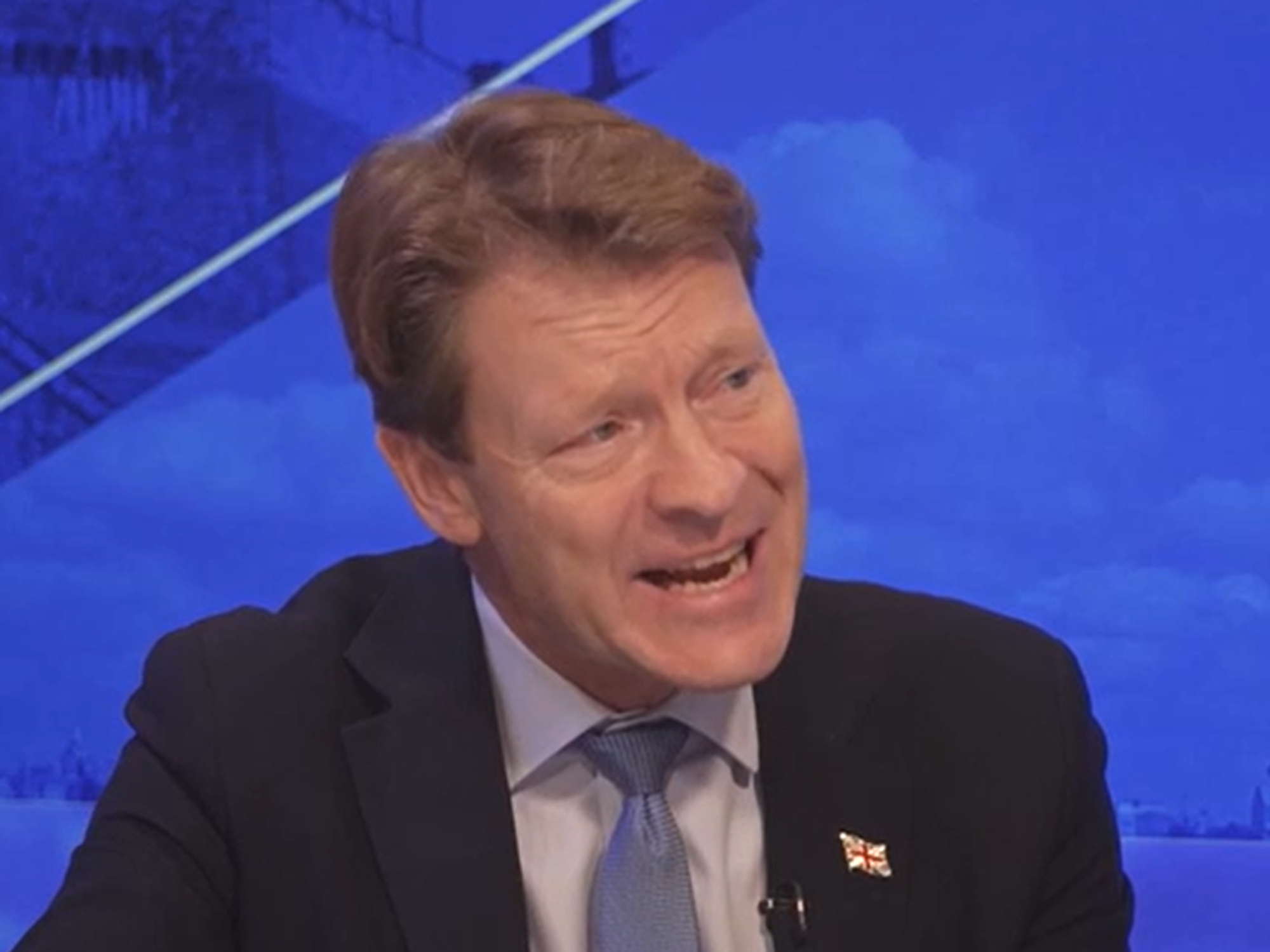The appalling abortion vote was a Kafkaesque ambush. And it will make middle-England pro-life - Colin Brazier
Emily Carver hits out at 'appalling' vote to decriminalise abortion past 24 weeks |
OPINION: Rarely has the gap between MPs and people seemed so yawning
Don't Miss
Most Read
Trending on GB News
For many parents-in-waiting, there is nothing like the 12-week ultrasound scan. It’s the moment a pregnancy gets a human face. Up until then, an expectant mother has no idea what her unborn baby looks like. But at the end of the first trimester, all that changes.
It can be a moment of joy and, in rare cases, heartbreak. After the birth of our first child, my late wife suffered two miscarriages, one of which was only confirmed by the 12-week scan and those deadening words from the clinician: “I’m afraid we can’t find a heartbeat”.
In subsequent pregnancies (my late wife went on to have five more healthy babies), those grainy black-and-white scans never lost their significance and power to move. Would the baby be alive? Was it developing as it ought to be?
Most strikingly of all was the difference between the first ultrasound at three months gestation, and the second at 20 weeks. In the two months between scans, a natal metamorphosis takes place. The unborn child goes from being little more than the blurred outline of a human form to something recognisably baby-like. At five months, the body parts have taken shape and, depending on how the operator positions the camera, it’s possible to pick out identifiable features like a rib or eye.
Being able to visualise what, for half a billion years of human history, was invisibly hidden behind a wall of flesh, is quite a thing. It’s on a par with our ever-improving ability to save babies born prematurely. So effective have paediatric techniques become that a baby born at 22 weeks - around the time of that five-month scan - now stands a 50/50 chance of survival.
Most grow normally and healthily afterwards. Just ask fans of boxer Tyson Fury, who was born three months early, weighing less than a quarter of a bag of sugar.
Scans and survival rates. Together they explain why most of our neighbours refuse to allow abortions after the second trimester, and some not even that. In Germany and Italy, the limit is 12 weeks and 14 weeks in France and Spain.
But in Britain, where abortion’s annual tally now runs at 250,000 and rising, terminations have been legal up to 24 weeks. We have been out of step with other European jurisdictions, and the public seems to know so. One recent poll revealed that 70 per cent of women supported a reduction in the UK time limit to 20 weeks or below.
 The appalling abortion vote was a Kafkaesque ambush. And it will make middle-England pro-life - Colin Brazier |
The appalling abortion vote was a Kafkaesque ambush. And it will make middle-England pro-life - Colin Brazier | Getty Images
That is the context for this week’s abortion vote, which removed the threat of criminal prosecution from any woman who ended her own pregnancy and did so after just two hours of debate (the bill to ban fox hunting, by comparison, got 700).
This means no sanction for an abortion carried out by women at any time. Not at 12, 20 or 24 weeks, but at any moment before birth. The legal change ushers in the surreal and baleful possibility that a woman could kill her unborn baby a day before birth without penalty or punishment, while facing murder charges for doing so the moment it is born. Surely, never before has our Parliament delivered a more Kafkaesque judgement.
The whole thing felt like an ambush. The measure wasn’t in the Government's manifesto. As Kemi Badenoch said afterwards, Labour’s super-majority means backbench activists are “running wild” and “advancing their own personal campaigns”.
And those campaigns are based on uncompromising dogma. An extreme feminist doctrine which insists that a woman’s bodily autonomy trumps all other considerations. It is an ideology - intersectionality - which also de-legitimises the opinions of anyone else. Any misgivings men might have about liberalising abortion can be dismissed, simply by dint of men “not knowing what it is to be a woman”. It is truly the politics of the students’ union. Worst of all, the unborn child, with neither voice nor rights, doesn’t get a look in.
In the week when the assisted suicide bill also went before MPs, I was reminded of the great guiding moral principle advanced 200 years ago by the conservative thinker Edmund Burke. He famously said that society had to reconcile the interests of the living - with those of the dead and the yet to be born.
We can guess that our ancestors would be struck dumb at a political establishment which takes such a reductive view of human life. As for those yet to be born? In Britain, their notional numbers fall year by year. Their interests, such as they are, have few advocates. Many modern Britons see children as a lifestyle choice, an unaffordable luxury.
We now know that our elected representatives see them as expendable in a way that leaves many of our European neighbours aghast.
Rarely has the gap between MPs and people seemed so yawning. Our new abortion law ignores advances in premature baby care. It turns a blind eye to the fact that most women know they are pregnant in the first trimester, and certainly before the end of the second. In late-term abortions, a woman has to physically ‘give birth’ to a dead baby. Why do we not insist that a woman desperate to ‘get rid’ does so by giving away her child for adoption? The State can provide a C-section if necessary.
The mother never needs to see her unborn child, but that unborn child, deprived of its biological mother, at least gets the chance at life. We have many people who are desperate to adopt. Give them a chance, and give unborn children the right to live the lives we take for granted.
There will be those who think this is where the matter now rests. That the arc of history inclines towards progress, and abortion is progressive. But this ignores the polling. And, from just talking this week to friends, it seems to me that it ignores the revulsion that people feel about abortion right up to the moment of birth.
The unyielding fanaticism of this opportunistic change will have consequences unseen by its authors. A cohort of conservatives who hitherto didn’t see abortion reform as a first-order issue, now will. The pro-life position is poised to go mainstream on the Right.
More From GB News











